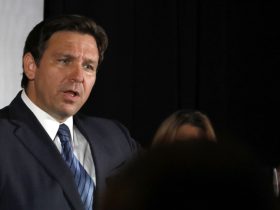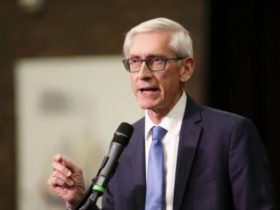On Monday, the ex-Internal Revenue Service contractor who disclosed tax records belonging to former President Donald Trump to The New York Times, along with the tax records of billionaires such as Jeff Bezos and Elon Musk to ProPublica, was sentenced to five years in prison.
Prosecutors requested the statutory maximum of five years in federal prison for Charles Littlejohn, who entered a guilty plea in October. They claimed that Littlejohn “abused his position by unlawfully disclosing thousands of Americans’ federal tax returns and other private financial information to multiple news organizations.”
The prosecution claimed that Littlejohn “weaponized his access to unmasked taxpayer data to further his own personal, political agenda, believing that he was above the law.”
U.S. District Judge Ana C. Reyes sentenced Littlejohn during a hearing at the federal courthouse in Washington. Additionally, he is required to pay a $5,000 fine.
“You can be an outstanding person and commit bad acts,” Reyes stated. “What you did in targeting the sitting president of the United States was an attack on our constitutional democracy,” she added.
Reyes contrasted Littlejohn’s acts with other recent threats and assaults on public servants, as well as with the defendants she recently sentenced on January 6.
Despite the fact that she thought he “sincerely felt a moral imperative” to act as he did, she classified his acts as part of a planned, intricate, multiyear criminal plot.
Littlejohn’s defense lawyer contended that his client believed he was correct at the time and that he had committed the crime “out of a deep, moral belief that the American people had a right to know the information and sharing it was the only way to effect change.”
Even though Littlejohn’s actions were “inexcusable” and “breached the trust placed in him by the United States government and violated the privacy of thousands of taxpayers,” the public had already received a “strong message of general deterrence,” according to his attorney.
Before being given his sentence, Littlejohn, 38, gave a brief speech to the court in which he said that he “acted out of a sincere but misguided belief that I was serving the public.” Littlejohn was born and raised in St. Louis, Missouri.
Littlejohn continued, stating he thought that when Americans are well-informed, they make the greatest decisions and that they should know how simple it is for the wealthy to avoid paying into the system.
“I made my decision knowing full well that I would probably find myself in a courtroom,” he declared.












Leave a Reply